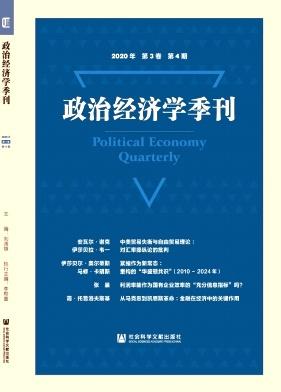The Return of Industrial Policy
引用次数: 139
Abstract
Industrial policy is experiencing a renaissance, at least in terms of public profile: around the world, many governments are actively — and overtly — intervening to influence the structural evolution of their economies, or thinking about it. The European Commission has proposed a “fresh approach to industrial policy”; the Obama Administration has committed to taking “strategic decisions about strategic industries” and the director of the White House’s national economic council has cogently articulated the case for a manufacturing policy; and Japan has indicated it wants to create a new “Japan Inc.” The Economist has worried about it (“Picking winners, saving losers: Industrial policy is back in fashion. Have governments learned from past failures?”); the OECD has studied it (Fostering New Sources of Growth – Is there a Role for “Industrial” Policy in the 21st Century?); UNCTAD has been “rethinking” it; the World Bank has re-introduced it into its development toolkit, albeit with qualifications (only if first best policies fail and then only temporarily and as neutrally as possible); and even the IMF has debated it. Governments of course have never stopped tinkering with industrial structures — for reasons as varied as the myriad collisions between elegant economic theories and messy economic realities. What is novel — and controversial — today is that industrial policy has come in from the cold. This paper reviews the empirical and theoretical developments that have returned industrial policy to the policy mix. This paper reviews the empirical and theoretical developments that have returned industrial policy to the policy mix, including a review of practice in the United States, Canada, the European Union and Japan as well as in the major emerging markets, Brazil, China and India. It concludes that a new economic consensus is required to make this presence comfortable for a generation of policymakers and analysts whose careers were made in a context where it was simply understood that governments cannot “pick winners” and suggests the basic precepts on which a new consensus might be built.产业政策的回归
产业政策正在经历一场复兴,至少在公众形象方面是这样:在世界各地,许多政府正在积极、公开地进行干预,以影响本国经济的结构演变,或者正在考虑这样做。欧盟委员会(European Commission)提出了一种“工业政策的新方法”;奥巴马政府已承诺采取“关于战略性产业的战略决策”,白宫国家经济委员会主任也已有力地阐述了制造业政策的理由;日本已经表示想要创建一个新的“日本公司”。《经济学人》对此表示担忧(《挑选赢家,拯救输家:产业政策重新流行》)。政府是否从过去的失败中吸取了教训?”);经合组织对此进行了研究(培育新的增长来源——“产业”政策在21世纪有作用吗?)贸发会议一直在“重新思考”它;世界银行(World Bank)已将其重新引入其发展工具包,尽管是有条件的(只有在最初的最佳政策失败的情况下,然后只是暂时的、尽可能中立的);甚至国际货币基金组织也对此进行了讨论。当然,政府从来没有停止过对产业结构的修补——原因多种多样,比如优雅的经济理论与混乱的经济现实之间的无数次碰撞。如今的新奇之处在于——同时也是有争议的——产业政策已经破天荒地出现了。本文回顾了将产业政策回归到政策组合的实证和理论发展。本文回顾了将产业政策重新纳入政策组合的实证和理论发展,包括对美国、加拿大、欧盟和日本以及主要新兴市场巴西、中国和印度的实践的回顾。报告的结论是,需要达成一种新的经济共识,才能让这一代政策制定者和分析师感到舒适,因为他们的职业生涯是在这样一个背景下完成的,即政府不能“挑选赢家”。报告还提出了一些基本原则,可以在这些原则的基础上建立新的共识。
本文章由计算机程序翻译,如有差异,请以英文原文为准。
求助全文
约1分钟内获得全文
求助全文

 求助内容:
求助内容: 应助结果提醒方式:
应助结果提醒方式:


